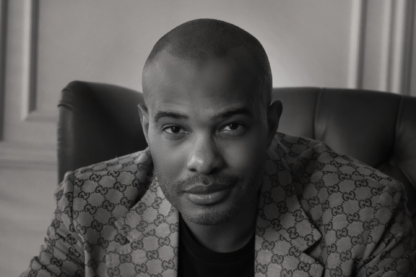For C-suite leaders in the luxury industry, staying ahead of digital marketing trends is essential to maintaining relevance in an increasingly competitive and tech-driven market. As we enter 2025, the global luxury sector is undergoing a profound transformation, driven by technological advancements, shifting consumer expectations, and a greater emphasis on sustainability. Here’s a strategic overview of the key digital marketing trends that every executive in the luxury space needs to consider.
Hyper-Personalization: The Strategic Imperative
Luxury consumers now demand more than superior products—they expect personalized, high-touch experiences across every channel. C-suite leaders must champion the integration of AI and predictive analytics into their marketing strategies. These tools enable brands to deliver individualized experiences, from tailored recommendations to VIP-only offers, fostering deeper customer loyalty. Executives should ensure that personalization efforts align seamlessly with brand values while leveraging first-party data to enhance privacy compliance.
Strategic Opportunity: Develop cross-functional teams to implement AI-driven CRM platforms and real-time customer insights for a 360-degree view of the consumer.
Web3 and Blockchain: Building Trust and Exclusivity
Web3 technologies are no longer experimental; they are becoming foundational to the luxury ecosystem. Blockchain’s ability to ensure authenticity is invaluable in a market where counterfeiting erodes trust. Moreover, NFTs offer an innovative way to engage loyal customers through exclusive digital ownership. C-suite executives should evaluate how these tools can be integrated into loyalty programs, digital collectibles, and provenance tracking systems.
Strategic Opportunity: Position blockchain initiatives as both a trust-building tool and a differentiator in the digital realm.
Sustainability-Driven Narratives: A Leadership Mandate
Luxury consumers, especially Gen Z and Millennials, prioritize sustainability as a key factor in their purchasing decisions. For the C-suite, this is an opportunity to lead by embedding sustainability into the company’s marketing and operational strategies. Executives should ensure that digital campaigns authentically showcase efforts in carbon neutrality, ethical sourcing, and circularity. Authenticity is paramount, as greenwashing risks damaging brand equity.
Strategic Opportunity: Integrate sustainability metrics into your marketing KPIs and collaborate with communications teams to create transparent, data-backed campaigns.
Immersive Digital Experiences: Investing in XR Technologies
Luxury thrives on exclusivity and immersion, and extended reality (XR) technologies—such as AR and VR—are redefining how brands deliver this at scale. Whether offering virtual showrooms or AR-based personalization tools, these innovations allow consumers to interact with products on their own terms. C-suite leaders should allocate resources to XR initiatives that bridge physical and digital touchpoints, enhancing accessibility without diluting the brand’s exclusivity.
Strategic Opportunity: Partner with leading tech firms to develop immersive experiences that showcase flagship offerings in new and engaging ways.

Evolving Influencer Strategies: Micro, Nano, and Virtual
Influencer marketing remains vital, but the focus is shifting toward authenticity and niche engagement. While celebrity endorsements provide broad reach, micro and nano-influencers connect deeply with specific segments, driving trust and credibility. Virtual influencers—AI-generated personas—offer another frontier for curated storytelling. Executives should refine influencer strategies to ensure alignment with brand narratives and consumer expectations.
Strategic Opportunity: Invest in data-driven influencer identification tools to maximize ROI and engage niche audiences effectively.
Social Commerce: From Engagement to Transaction
The convergence of social media and e-commerce is reshaping the luxury buying journey. Platforms like Instagram and TikTok now offer direct shopping functionalities, blurring the lines between inspiration and purchase. For executives, this trend represents an opportunity to reduce friction in the sales funnel while elevating the brand’s social media presence.
Strategic Opportunity: Empower marketing teams to integrate shoppable content strategies into omnichannel campaigns for seamless consumer journeys.
Voice and Visual Search: Preparing for the Next Wave
Voice and visual search technologies are becoming integral to how consumers discover and engage with luxury brands. From voice-activated shopping assistants to image-based searches, the future of digital marketing lies in ensuring products and services are optimized for these mediums. Leaders should drive innovation in content creation and SEO strategies to capture these emerging search behaviors.
Strategic Opportunity: Reallocate budget to optimize digital assets, ensuring they are discoverable via voice and visual search platforms.
Virtual Influencers: A Strategic Frontier
Virtual influencers offer a controlled, consistent way to connect with younger, tech-savvy demographics. These AI-created personas align perfectly with brand aesthetics and messaging, eliminating risks associated with human influencers. As pioneers in digital storytelling, virtual influencers can extend the brand’s presence into emerging spaces like the metaverse.
Strategic Opportunity: Pilot campaigns featuring virtual influencers to gauge consumer engagement and brand fit.
Localization at Scale: Balancing Global and Regional Strategies
While luxury brands operate globally, localized marketing is key to resonating with diverse consumer bases. This requires investment in region-specific content, geo-targeted campaigns, and local influencer partnerships. C-suite executives should advocate for a hybrid approach that balances global brand consistency with regional relevance.
Strategic Opportunity: Empower regional teams with tools and resources to execute localized campaigns while maintaining oversight for brand consistency.
Privacy and Ethics: Building Consumer Trust
Data privacy is a growing concern, and luxury consumers demand ethical marketing practices. With regulations tightening, executives should prioritize transparency in data collection and usage. Shifting to first-party data strategies—such as exclusive memberships and interactive digital experiences—can provide actionable insights while respecting privacy.
Strategic Opportunity: Align marketing and legal teams to ensure compliance with evolving privacy standards while maintaining consumer trust.
Leading Through Innovation and Authenticity
For the C-suite, 2025 is a year to lead with purpose and innovation. By embracing these trends, luxury brands can create meaningful connections with their audiences, drive sustainable growth, and maintain their position at the pinnacle of the market. Success will depend on a strategic balance of technology adoption, ethical leadership, and a relentless focus on delivering value to the discerning luxury consumer.
Stay up to date on the latest trends: https://worldluxurychamber.com/insights-news/





